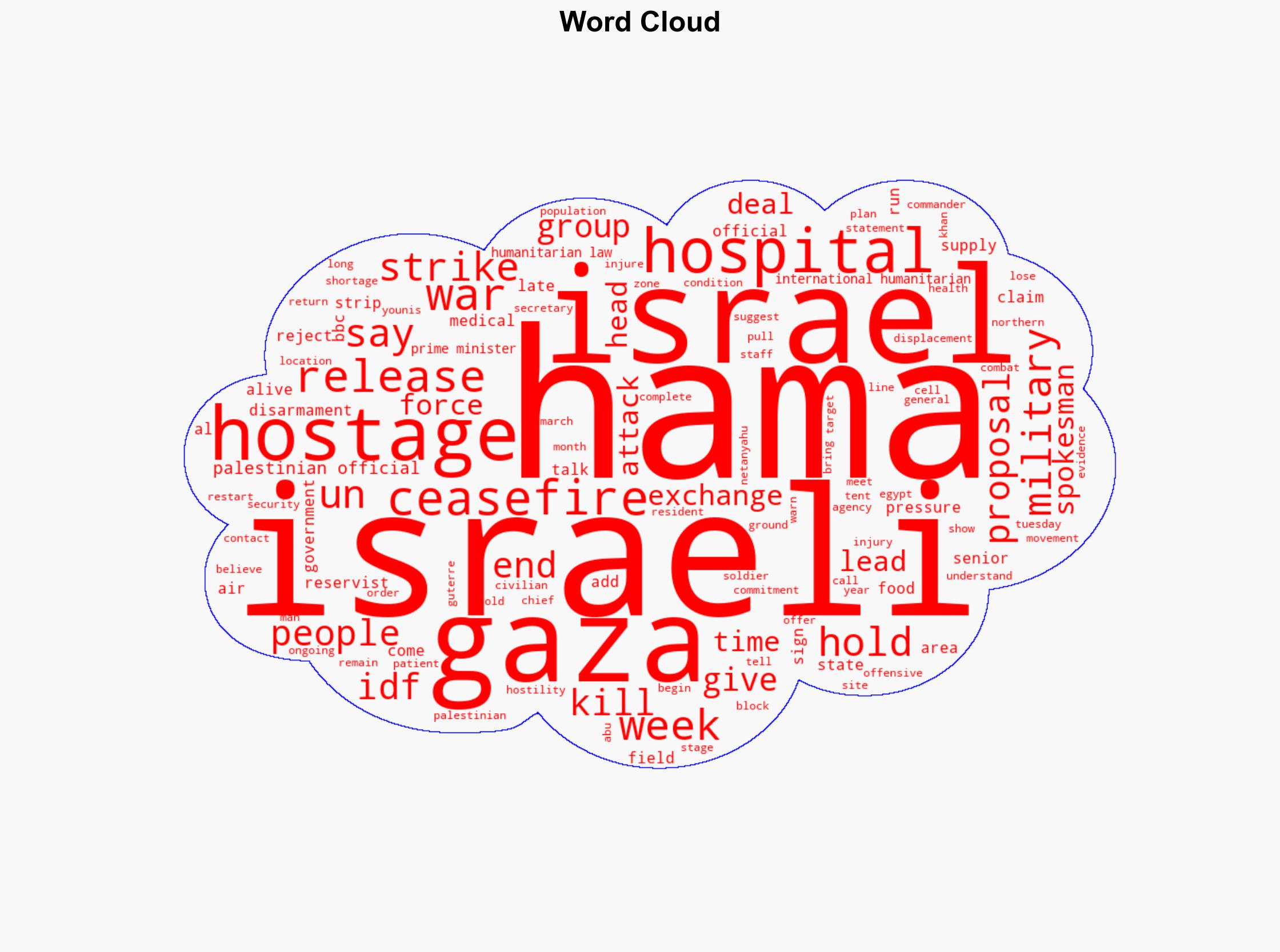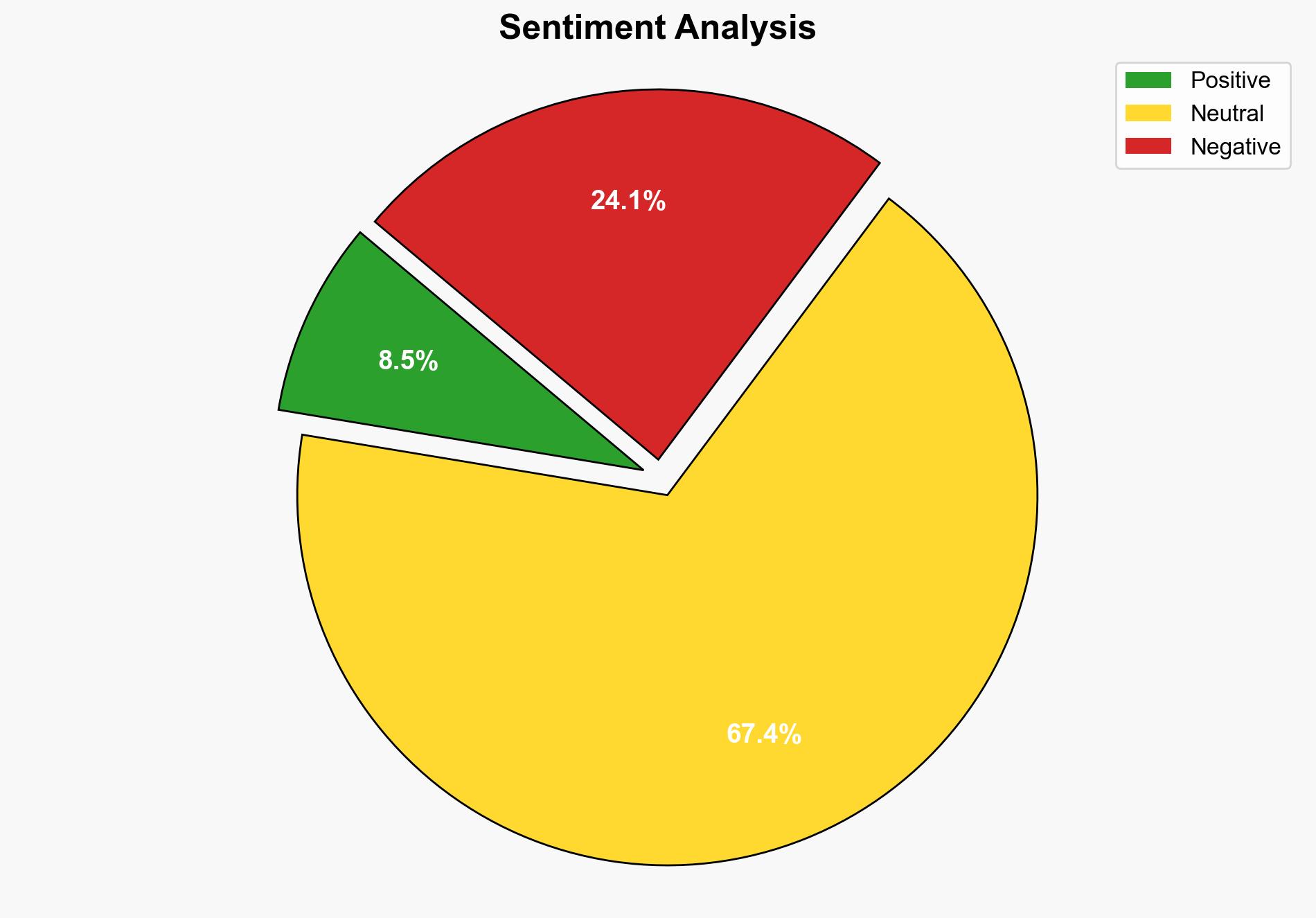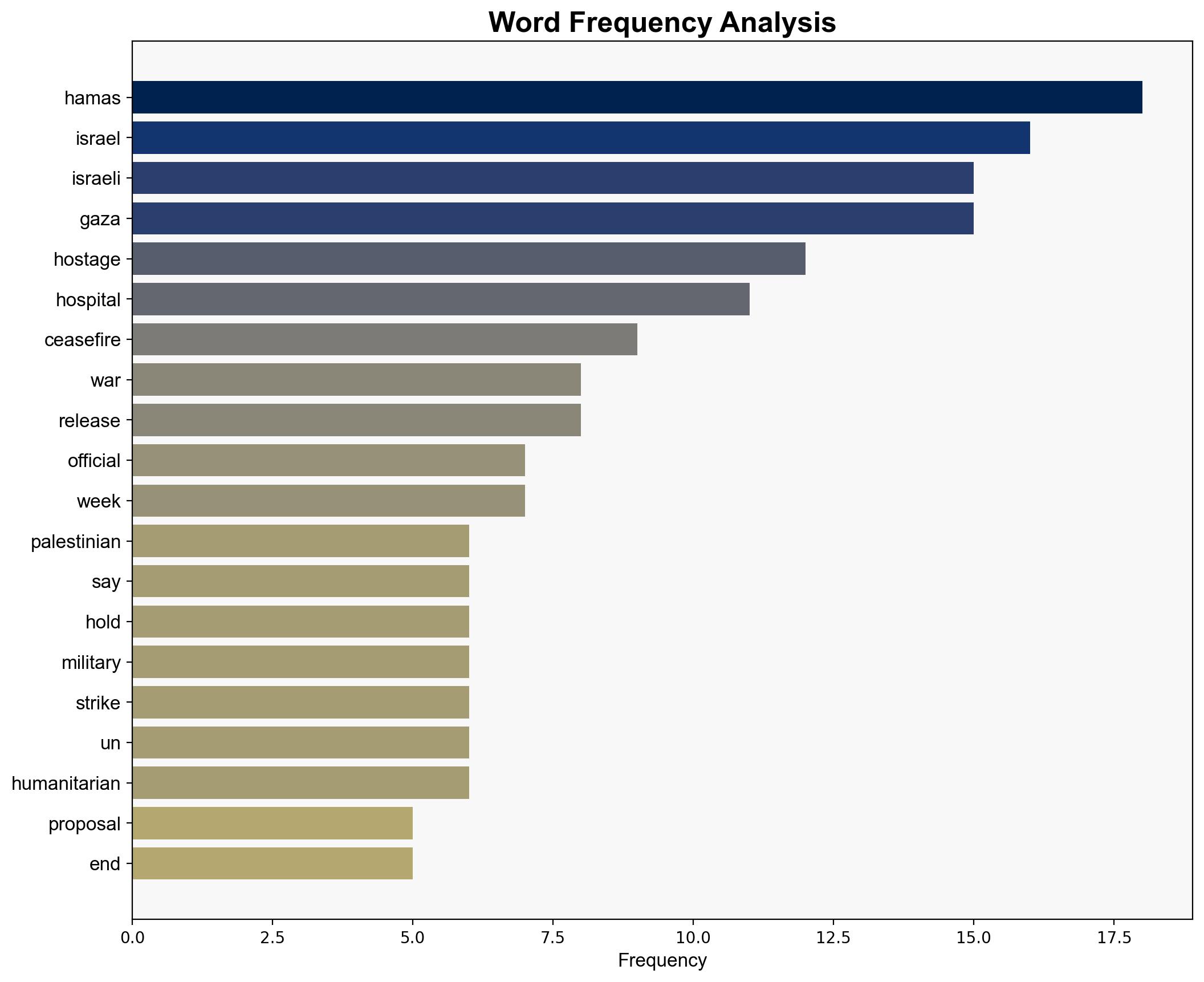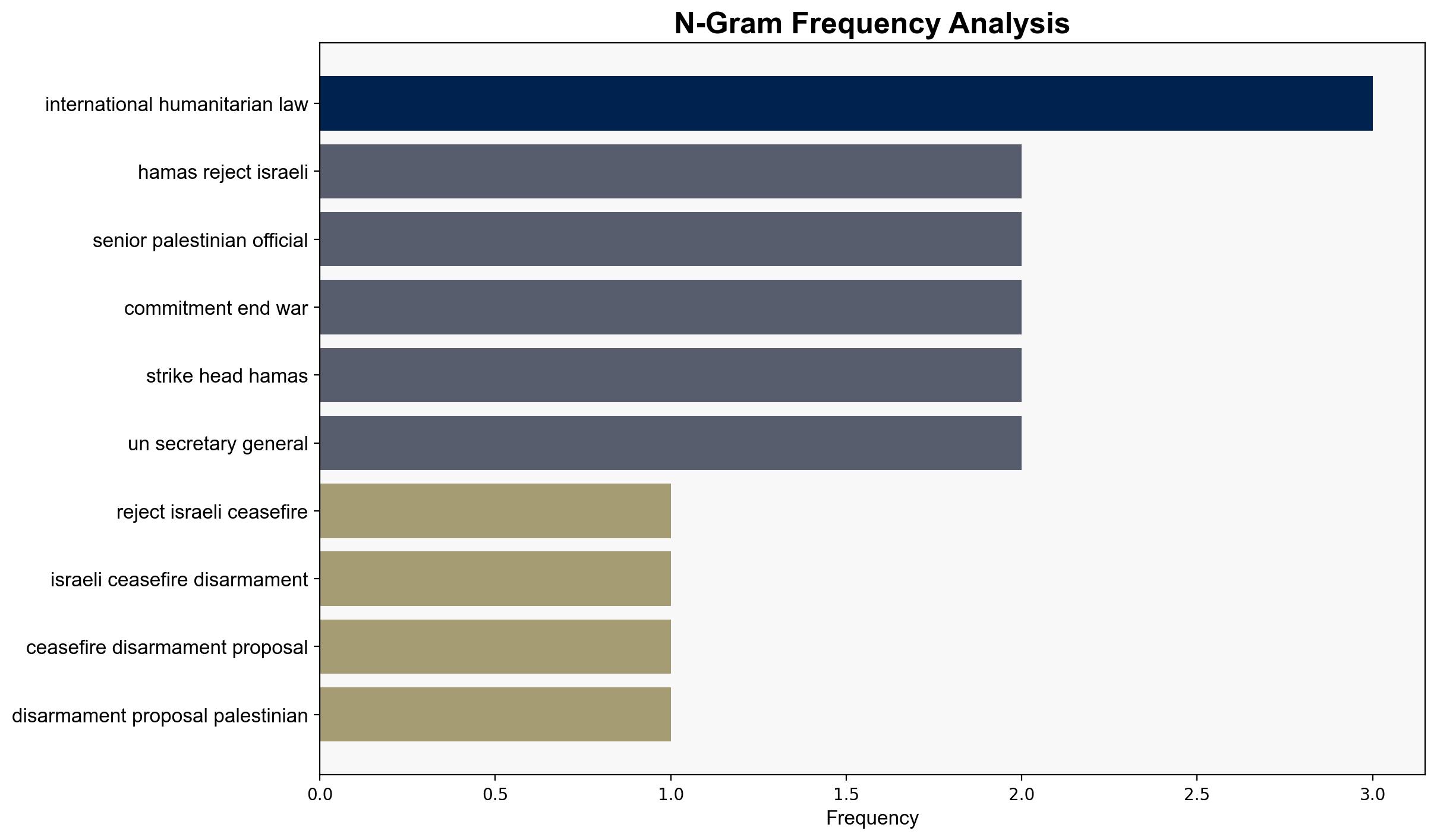Hamas rejects Israeli ceasefire disarmament proposal – Palestinian official – BBC News
Published on: 2025-04-15
Intelligence Report: Hamas rejects Israeli ceasefire disarmament proposal – Palestinian official – BBC News
1. BLUF (Bottom Line Up Front)
Hamas has rejected an Israeli proposal for a six-week ceasefire in Gaza, which included a demand for disarmament without addressing key Hamas conditions such as ending the war or withdrawing Israeli troops. This rejection highlights ongoing tensions and the potential for continued hostilities. The humanitarian situation in Gaza is deteriorating, with significant civilian casualties and infrastructure damage reported. The blockade on supplies into Gaza persists, raising concerns over potential breaches of international humanitarian law. Strategic engagement with regional mediators remains critical to de-escalating the conflict.
2. Detailed Analysis
The following structured analytic techniques have been applied for this analysis:
General Analysis
The Israeli proposal for a ceasefire, which included the disarmament of Hamas, represents a significant shift in negotiation tactics, marking the first time such a condition has been explicitly included. This demand is a red line for Hamas, indicating a low likelihood of acceptance without reciprocal concessions. The ongoing military offensive by Israel and the humanitarian crisis in Gaza exacerbate tensions, with both sides experiencing casualties and infrastructure damage. The involvement of regional mediators, such as Egyptian intelligence, underscores the complexity of the situation and the need for multilateral dialogue.
3. Implications and Strategic Risks
The rejection of the ceasefire proposal poses several strategic risks, including:
- Continued military engagement and escalation of hostilities in Gaza, leading to further civilian casualties and infrastructure damage.
- Increased humanitarian crisis in Gaza, with potential violations of international humanitarian law due to the blockade on supplies.
- Destabilization of regional security, impacting neighboring countries and international relations.
- Economic repercussions due to prolonged conflict, affecting trade and investment in the region.
4. Recommendations and Outlook
Recommendations:
- Engage in diplomatic efforts to facilitate dialogue between Hamas and Israel, focusing on mutually acceptable terms for a ceasefire.
- Encourage regional and international stakeholders to provide humanitarian aid and support to alleviate the crisis in Gaza.
- Consider regulatory measures to ensure compliance with international humanitarian law and protect civilian populations.
Outlook:
In the best-case scenario, renewed diplomatic efforts could lead to a temporary ceasefire, allowing for humanitarian relief and de-escalation of hostilities. In the worst-case scenario, continued rejection of ceasefire terms could result in prolonged conflict and further deterioration of the humanitarian situation. The most likely outcome involves intermittent negotiations with sporadic escalations, necessitating ongoing international mediation.
5. Key Individuals and Entities
The report mentions significant individuals and organizations, including:
- Benjamin Netanyahu
- Donald Trump
- Khalil al-Hayya
- Abu Ubaida
- Edan Alexander
These individuals play crucial roles in the ongoing conflict and negotiations, influencing the strategic direction and potential resolutions.





